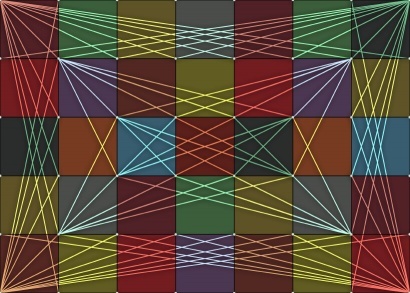Definition of Sex Education
Qualitative Research / / April 02, 2023

Degree in psychology
Sex education is not reduced to a mere transmission of knowledge, but involves the development of personal skills necessary to self-realize in the various spheres of life sex life. For example, in matters that have to do with the construction of personal identity, from learning to listen to our own needs, to say yes and no, to recognize our desires, to learn what we like and what we don't and to know ourselves. Sex education allows us to analyze our attitudes, our value systems and the way we communicate with others.
The Education Sexual does not necessarily imply talking about sex or teaching a set of self or hetero stimulation techniques. Nor does it imply talking exclusively about the reproduction. In any of these cases we would be falling into reductionism. However, it is not easy not to fall for them, since sexuality has been and continues to be, although not in the same way, a taboo subject throughout history, as well as the subject of political disputes that directly impact our subjectivity.
Due to these and other issues, its teaching and conceptualization have been biased and biased, even leading us to identify it exclusively with genitality. However, we can affirm that although sexuality involves the genitals, it is not limited to them. This restricted view of sexuality, which has led us to identify it with genitality, has gone hand in hand with a sexual education that has focused mainly on warn about the risks that the exercise of the same could entail, with special emphasis on the prevention of unwanted pregnancies and transmitted infections sexual. Thus, the axes from which it has been approached have commonly focused on biological aspects, providing physiological, anatomical and functions on reproductive systems and bodily changes that occur throughout the life cycle, from an androcentric, hetero-normative and cis logic sexist. This educational model, based on a biological reductionism, was traditionally reproduced by educational institutions. In this way, a multiplicity of questions that have to do with the development of a positive and healthy sexuality, which does not only involve the absence of diseases or the avoidance of pregnancies desired.
Towards a paradigm shift in Sexual Education
Currently, Sexual and (non) Reproductive Rights are recognized as part of Universal Human Rights. Therefore, education on sexuality is also a right of all people and one obligation of the national States to guarantee the full exercise of the same. In many countries, such as Argentina, Sexual Education is formalized in a law Comprehensive Sexual Education.
In a broad sense, sexual education has to do with a series of learning about one's own body, about how to relate to him in a consensual, kind and respectful way and how to do it, in the same way, with others people. Sex education involves working on the development of autonomy and sovereignty of one's own body in order to make responsible decisions regarding sexuality. In this way, today, issues that traditionally remained outside, such as the recognition and assertive expression of emotions, the valorization of affections, the equity between genders, respect for diversity of sexual orientations and gender identities.
Also, it promotes the development of a thought critical that allows de-escentializing behaviors that were traditionally believed to be natural, but that we actually know that have their origin in the social context, such as the distribution of certain social roles based on gender. In this sense, sexual education allows us to realize how we reproduce stereotypes and representations that legitimize inequalities and unfairly asymmetric power relations and how we are victims and exercise violence.
The role of the Sex Educator
inside this paradigm, the role of the educator is that of a facilitator who contributes to the formation and development of the critical capacity of people to decide freely, responsibly and about their own body, as well as the promotion of interpersonal relationships that are based on respectful practices and positive assessments of the diversity. In short, the sex educator must contribute to personal enrichment.
References
Baez J. and González del Cerro C. (2015). Sex Education Policies: trends and challenges in the Latin American context. In: IICE Magazine, (38), 7-24.Flowers, Valerie. (2015) “ESI: That Ungovernable Sexuality. The challenge of de-heterosexualizing pedagogy”
Morgade, G. (2011), Ed. All education is sexual: Towards a just sexual education.: La Crujía, Buenos Aires. Argentina.



